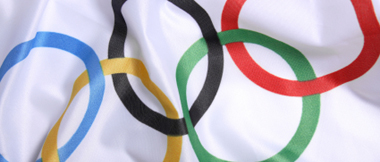 The Olympics are in
full swing in Rio de Janeiro, Brazil. The modern Olympic games have always
created a stage where a city and a country can showcase themselves to the rest
of the world. Hosting the Olympics is as much of an economic statement as it is
a sports venue. Done right, it is saying that this place is stable, vibrant and
open for business. Done wrong and you are sending just the opposite signal. It
is not that different than the statement marketing makes about your business.
So what can we learn from the Rio Olympics?
The Olympics are in
full swing in Rio de Janeiro, Brazil. The modern Olympic games have always
created a stage where a city and a country can showcase themselves to the rest
of the world. Hosting the Olympics is as much of an economic statement as it is
a sports venue. Done right, it is saying that this place is stable, vibrant and
open for business. Done wrong and you are sending just the opposite signal. It
is not that different than the statement marketing makes about your business.
So what can we learn from the Rio Olympics?
Bad press can drag
down your reputation quickly. Rio has had plenty of bad press. First there was
the news of the mosquito-carried Zika virus that caused many athletes to stay home
from the games. Then there was the unsanitary water where athletes would be
competing. The Brazilians were told to get it cleaned up. They were slow to
respond to that mandate. The news also was not good when a report came out that
the Rio de Janeiro that was shown to cameras was not the real city and that the
unsightly portion of the city was cordoned off and out of the view of TV
audiences. It has set up a class war between the native Brazilians that chant
derogatory remarks toward athletes who have come from advanced countries and
those who find the conditions of Rio less than acceptable.
How do you handle news
about your business, be it good or bad? You should be active in doing
something in either scenario. If news is good, you should ride it for all
it’s worth. That requires you to have an outlet to distribute news - be it your
own internal sources like your web site or social media, or an outside source
like news agencies, trade groups, etc. Understand that for it to be relevant,
it has to be timely. No one wants to read what happened to your business three
months ago. News trends much quicker than that. In order to make this happen
quickly, you will need a writer and a process to distribute your news. This is
relatively easy to do, you just have to be disciplined in order to make it
happen. With today’s measurement tools, you can very easily see the impact your
message has with your target audience.
If the news is bad,
you need to have a communications plan in place to counteract the negative press
coming your way. I tell our clients it is better to admit a mistake was made
than to try to cover it up. But don’t stop with the admission, let people know
your plan to correct the mistake. A few years ago, Dominos Pizza admitted that
in customer satisfaction surveys, their pizza was scoring very low. They made a
campaign out of reinventing their pizza. They said they listened to what
customers wanted and vowed to change their menu. They turned a negative into a
positive simply by listening to their customers, admitting their problem in a
very public campaign, and spelling out their solution to the problem.
There is an often
quoted axiom in marketing that says, "there is no such thing as bad press.”
This thought is based on the phenomenon that even bad press keeps your name in
front of the customer. I would say there is such a thing as bad press and it
can kill your company. But if you handle it in a proper way, you can make
marketing work for your benefit. Take a lesson from Rio.